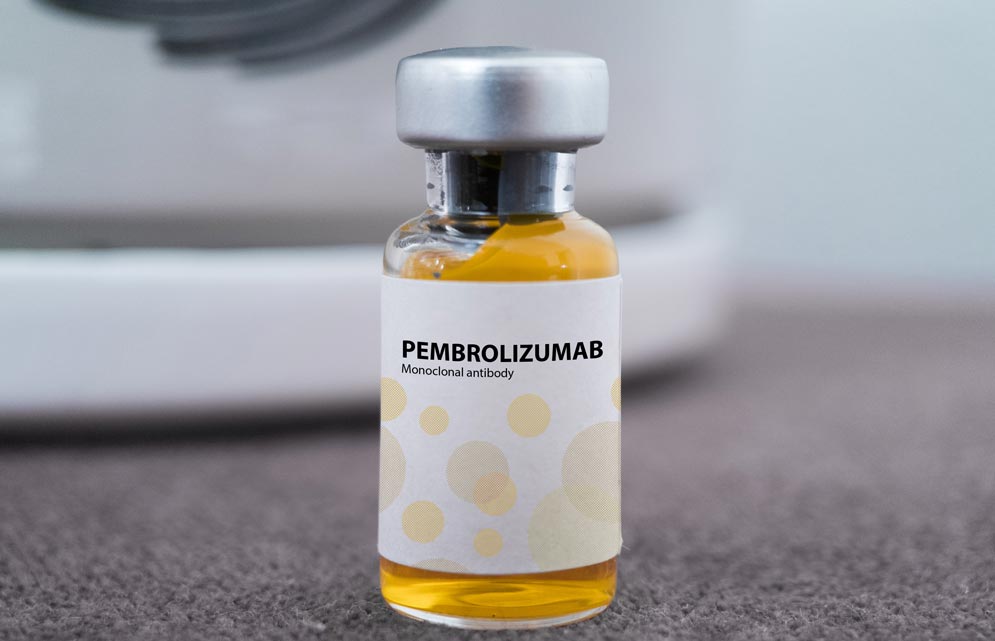Advertisment
Adjuvant pembrolizumab treatment improves survival in patients with advanced soft tissue sarcoma of the limb

Adding treatment with pembrolizumab to standard of care in patients with advanced soft tissue sarcoma of the limb appears to significantly improve disease-free survival, researchers reported on Nov. 12, 2024 in The Lancet.
“Since we haven’t made much progress in treating these patients for decades, it’s really exciting that this trial shows pembrolizumab can improve outcomes beyond current standard of care for patients with locally advanced disease,” said author Yvonne Mowery, M.D., Ph.D., associate professor of radiation oncology at the University of Pittsburgh and UPMC Hillman Cancer Center, both in Pittsburgh, Pennsylvania.
Senior author David Kirsch, M.D., Ph.D., leader of the Stand Up To Cancer Catalyst Research Team, which ran the clinical trial, and head of the Radiation Medicine Program at Princess Margaret Cancer Centre at the University Health Network in Toronto, Canada, added, “This clinical trial is a major advance for patients with the kinds of sarcoma that were included in our study. We found that immunotherapy can improve outcomes for patients with the most aggressive form of the disease, suggesting that further optimization of immunotherapy may lead to even greater gains for our patients.”
As background, Mowery said that soft tissue sarcoma of the extremity is a group of tumors that originate in the muscles, tendons, fat, blood vessels or nerves of the legs and arms. About half of patients with large, high-grade sarcomas develop incurable metastases.
In this international trial, the investigators enrolled subjects with stage 3, grade 2 or 3 soft tissue sarcoma of the extremities, including two subtypes — undifferentiated pleomorphic sarcoma and dedifferentiated/pleomorphic liposarcoma.
Control group subjects received standard of care, which included preoperative radiotherapy and surgery. Subjects in the experimental group received standard of care plus preoperative and postoperative infusions of pembrolizumab.
In a total of 127 subjects, the two-year disease-free survival rate was 52% for the control group and 67% for the experimental group, showing that when compared to standard of care, adjuvant pembrolizumab reduced recurrence or death for patients.
Serious adverse events were more frequent in the experimental group (56%) compared with the control group (31%). There were no treatment-related deaths in either group.
“Based on our finding that pembrolizumab significantly improved disease-free survival, we hope that more clinicians will start incorporating immunotherapy into their practice for these patients,” said Mowery. “Given that there are such limited effective options for patients with metastatic disease, our hope is that reducing the number of patients who develop metastases will ultimately lead to improvements in overall survival.”





